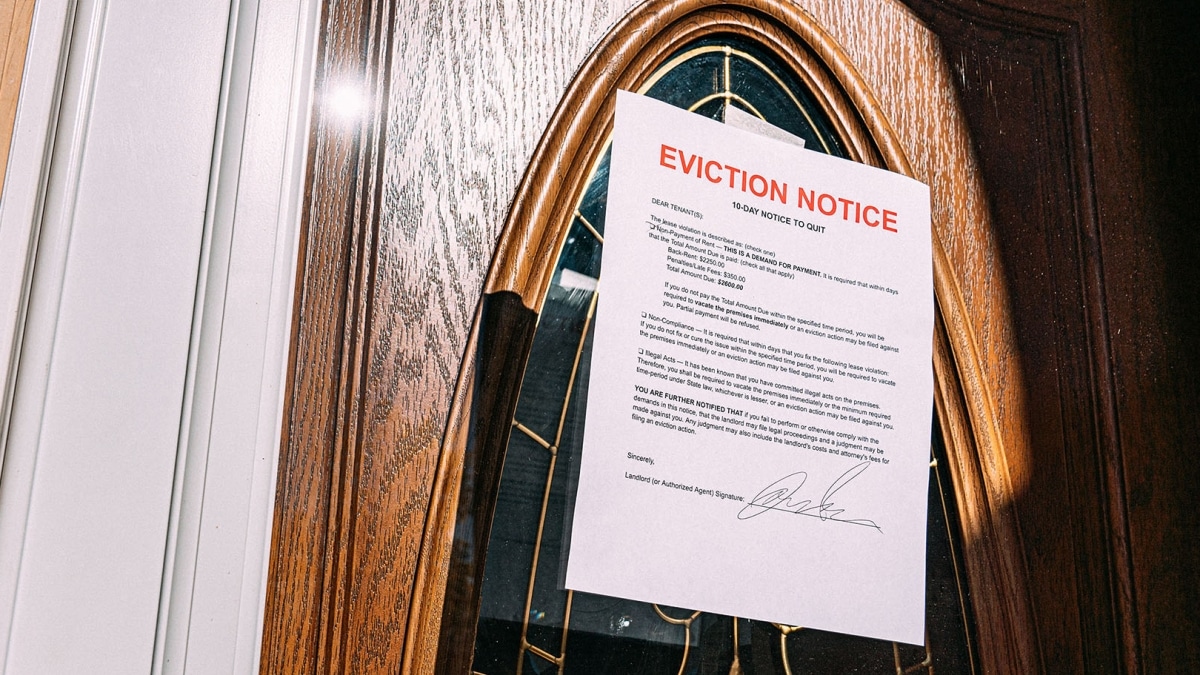Are you a landlord facing the challenge of evicting a tenant in Michigan or Minnesota? Eviction can be complex and daunting, but with the right knowledge and guidance, you can navigate it successfully. This comprehensive guide will walk you through the eviction processes in both states, covering everything from serving eviction notices to attending court hearings and executing judgments. Whether you’re dealing with non-payment of rent, lease violations, or other issues, this article provides essential information to help you understand and manage the eviction process effectively.
Contents
Michigan Eviction Process
Eviction Notice Requirements and Types
In Michigan, landlords must cleave to specific guidelines when serving eviction notices to tenants. The notice can be served tête-à-tête, to a ménage member or hand, via correspondence, or electronically with tenant concurrence.
- Rent Demand Notice: Used when tenants fail to pay rent.
- Lease Violation Notice: Issued for violations of lease terms.
- Notice to Quit for Material Health or Safety Violations: Addressing serious health or safety breaches.
- Notice to Quit for Violence: Used in cases involving violence on the property.
Each notice must include the rental property’s address, reasons for the demand, the number of days given to amend the issue( if applicable), and any quantities due.
Filing the Eviction Lawsuit
After serving the eviction notice and allowing the specified time for compliance, landlords in Michigan can file an eviction action, formally known as a Complaint to Recover Possession of Property, in the District Court. This complaint should detail the case number, court address, landlord and tenant information, base for eviction, and verification of property’s form status if applicable.
It’s important to note that filing an eviction action in Michigan incurs a figure of$ 45, plus fresh costs for financial judgments grounded on the quantum claimed. Landlords also have the option to demand a jury trial, if asked .
Serving the Tenant With a Summons
Once the lawsuit is filed, the court issues a summons to the tenant, along with a copy of the complaint and the scheduled hearing date. The summons must be served at least three days before the hearing, which typically occurs within ten days of issuance. While tenants aren’t required to file a written answer, they may choose to do so.
Attending the Court Hearing and Receiving Judgment
At the court hail, both parties present their cases and give substantiation to support their arguments. Landlords should come set with essential documents similar as the parcel agreement, eviction notice, and any dispatches with the tenant regarding the violation.
The judge evaluates the substantiation and issues a judgment, which may grant possession of the property to the landlord and potentially order the tenant to pay outstanding rent or damages. It’s essential to note that the process of carrying a writ of reparation to apply the judgment can take fresh time.
Additional Considerations in Michigan
Landlords should be aware of specific considerations that may affect the Eviction process in Michigan, such as property sale-related evictions and potential delays due to appeals or motions for a new trial. Adhering to Michigan’s housing laws and following proper procedures is crucial throughout the eviction process.
Minnesota Eviction Process
Serving Written Eviction Notice
Minnesota eviction process begins with serving a written eviction notice to the tenant. This notice must state the reason for eviction, similar as remitment of rent or parcel violations, and misbehave with Minnesota’s legal conditions. Landlords must give a specific period for the tenant to remedy the situation or vacate the property.
Filing an Eviction Lawsuit
If landlords can do by filing an eviction action, also known as a complaint, If the tenant fails to misbehave with the eviction notice. The complaint should include details similar as the parcel agreement, eviction notice served, and the reason for eviction. A form figure is needed, and clones of the complaint must be submitted to the court and each tenant involved.
Court Hearing and Judgment Process
Upon filing the complaint, the court issues a process to the tenant, specifying the date and time of the hail. The process must be served to the tenant at least seven days before the hail date.
During the court hail, both parties present their cases and give substantiation to support their arguments. The judge evaluates the substantiation and issues ajudgment.However, it may include a Writ of Recovery of Premises and an Order to Vacate, If the judgment favors the landlord.
Tenant’s Move-Out and Sheriff’s Involvement
If landlords in Minnesota do with carrying a Writ of Recovery of Premises If the tenant doesn’t vacate after the court’s judgment. This writ is handed to the sheriff, who posts it at the property and gives the tenant generally 24 hours to vacate freely.
If the sheriff may forcefully remove them from the demesne If the tenant fails to misbehave with the writ. Landlords are responsible for the costs associated with the sheriff’s involvement and must cleave to legal conditions regarding the storehouse of the tenant’s things.
Conclusion
Navigating the eviction process as a landlord in Michigan or Minnesota requires thorough understanding and adherence to state-specific laws and procedures. By following the way outlined in this companion and seeking legal advice when necessary, landlords can effectively manage tenant issues and insure a legal eviction process.
Understanding the eviction notice conditions, filing procedures, court sounds, and enforcement of judgments is essential for landlords seeking to recapture possession of their property while guarding their rights and complying with state laws.
By applying this knowledge and guidance, landlords can navigate the eviction process confidently and handle tenant issues effectively in both Michigan and Minnesota. Flash back, consulting with legal coffers and professionals can give fresh support and insure a smooth eviction process.

